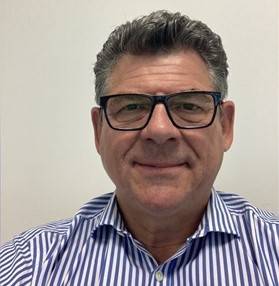« OUR BUSINESS :
COSMETICS FOR SEEDS »
Article : Anne Gilet – June 2. 2023 – Référence-Agro

Aegilops is a structure dedicated to seed coating. Aegilops is a structure dedicated to seed coating. Now, in addition to fungicide or insecticide solutions, customers are asking to position fertilizers and biosolutions around seeds. Multi-layering is coming! This profession, in full evolution, must also take into account new regulations, starting with those related to plastics and microparticles of solid polymers Didier Lannoy, director of the company, tells us more.
Founded in 2002, Aegilops has become, since its acquisition by Bioline in 2018, a subsidiary of InVivo. “However, Aegilops remains an autonomous structure, whose main activity is the design of tailor-made coating solutions, liquid or powdered, to be applied around the seeds, according to the expectations of our customers,” explains Didier Lannoy, its director. Our job is hand-stitched.”. In view of the increasingly varied demands of customers, Aegilops’ offer continues to expand: both in formulations and worked cash and application processes.
Respond to each client’s requests.
“The idea is to successfully coat seeds, regardless of their shape, size, weight and customer specifications,” he says. And this, without disturbing the activity of phytosanitary molecules or applied biosolutions and without reducing the rate of bagging for production and sowing sites. A real challenge in a context where regulations are increasingly strict. “We must reconcile the obligation to reduce dust emissions, in the factory and in the field, ensure the protection of production operators and farmers, facilitate the flow of seeds in the seeder in a context where construction speeds are constantly increasing… All while keeping the selectivity and performance of the formulation,” he says.
Tomorrow bringing chemistry and living organisms together.
Didier Lannoy acknowledges that over the past five years, his profession has evolved considerably. “Whereas previously, our customers wanted to apply fungicidal or insecticide active ingredients around the seed, for the past five years, the coating has also included fertilizers and, for the past two years, microorganisms with biocontrol or biostimulation actions. This is a game changer because these specialties do not keep in the same way and often have a shorter shelf life with greater storage constraints. »
Film-coating seeds with bacteria, for example, is more complicated because the whole issue is not to attack them: to keep them active until the moment of their use. “Bringing chemistry and living organisms together is not easy,” admits Didier Lannoy. To do this, we will focus our research on a new application technique, multi-layering, to isolate each co-formulant from the coating. »
Sites conditioned to work small volumes.
Aegilops is growing at nearly 10% per year. “A dozen premium products cover nearly 70% of our business,” he adds. But in total, our range has more than 40 products, for a base of 100 customers. Our particularity is to be able to meet all requests, even for small volumes. Our tools are conditioned for. Aegilops works with all seed groups and with many phytosanitary companies to develop the best “recipes” for application, according to the specifications of each. In total, more than 20 species are worked on field seeds and vegetable crops, as well as flax and cotton. “We are still looking to diversify our offer on vegetable seeds,” says Didier Lannoy. Investment in new equipment should, in the long term, allow us to do so. “
Removing plastics from coatings
The R&D department represents nearly a third of employees: many chemists and some agronomists. “Our role is also to support our customers in the storage and proper application of our products,” explains Julien Croenne, head of the R&D department. Regulatory constraints are evolving and with them, our working methods. Among the ongoing projects, the need to eliminate, by 2027 in France, synthetic polymers from our formulations. Seed treatments are also affected by the regulations related to plastics! The use of soluble biodegradable formulations may be an alternative. Lucille Gratecap, in charge of formulations, acknowledges that “the regulatory part takes more and more time, especially since each country has its own rules. Today, we work with more than 20 countries, and therefore, as many regulatory specificities! Between 35 and 45% of the volumes produced each year are destined for export on five continents.
Aegilops in Numbers
- Established in 2002
- 15 employees, including 7 dedicated to research
- 2 production sites: in Val-de-Reuil (27) and Montreuil-Bellay (49) on the Phyteurop site
- In 2021, opening of a new research laboratory and investment in a 100% Aegilops formulation line on the Montreuil-Bellay site.
- In 2022, installation of the headquarters on our new site.